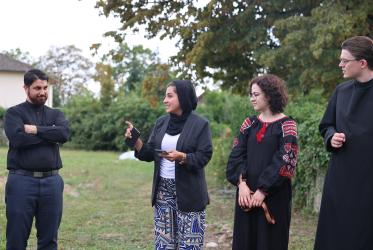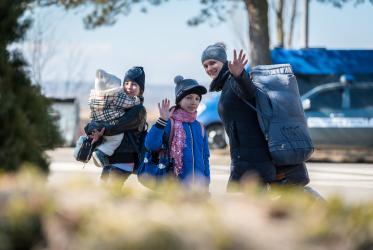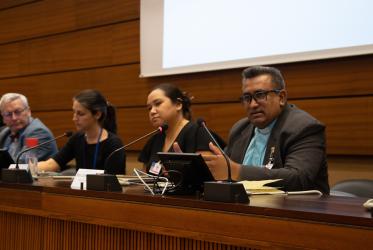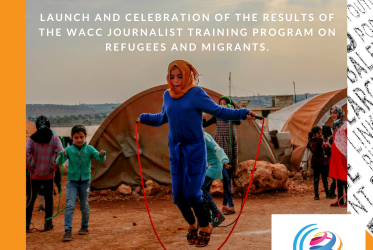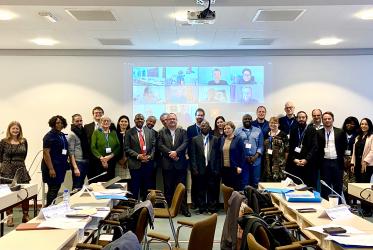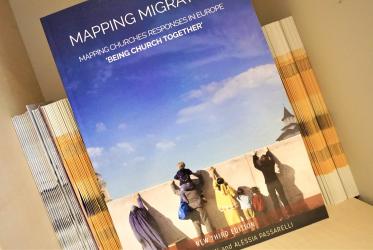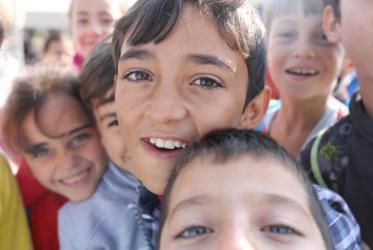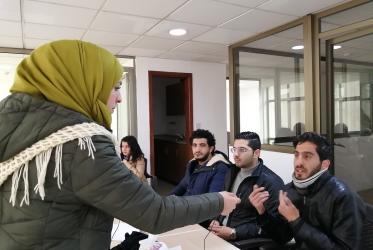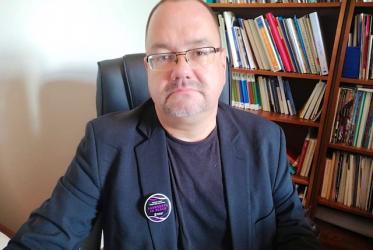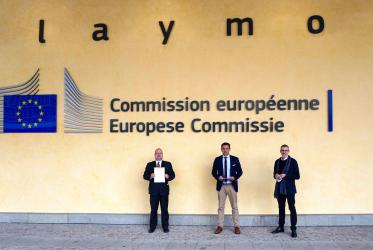The advocacy statement of ecumenical organisations responding to the new EU Migrant Pact and the situation of migrants and refugees in Europe was received 25 September in the European Commission offices in Brussels. The statement was addressed to Vangelis Demiris, cabinet member of the vice president of the commission Margaritis Schinas, who is coordinating the commission’s work on the New Pact on Migration and Asylum. Dr Jørgen Skov Sørensen, general secretary of the Conference of European Churches, and Dr Torsten Moritz, general secretary of the Churches' Commission for Migrants in Europe, delivered the statement to Demiris, who is responsible for the dialogue with the churches and faith-based organisations.
25 September 2020
